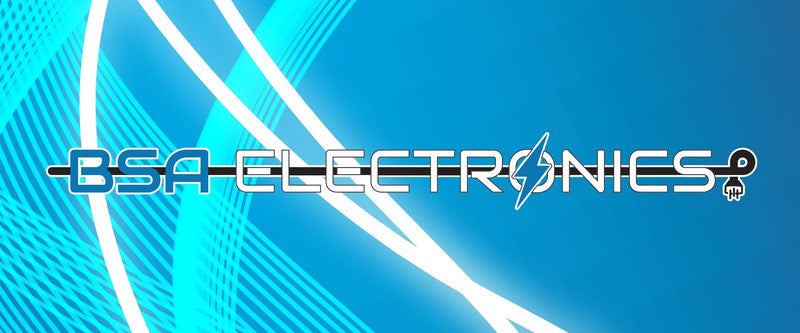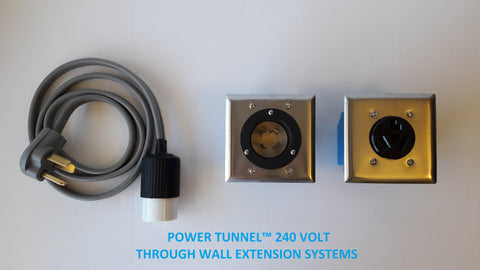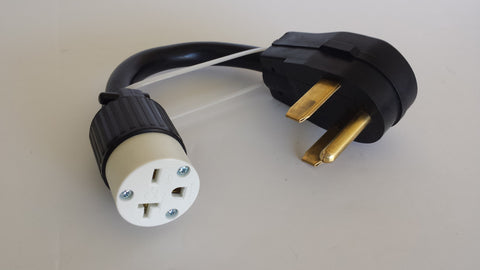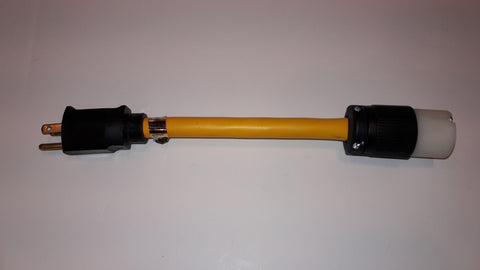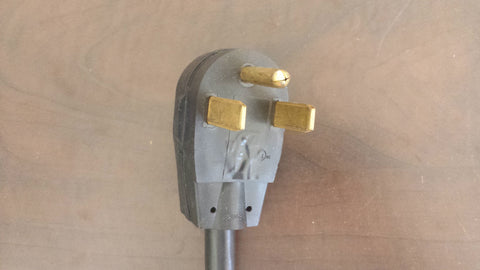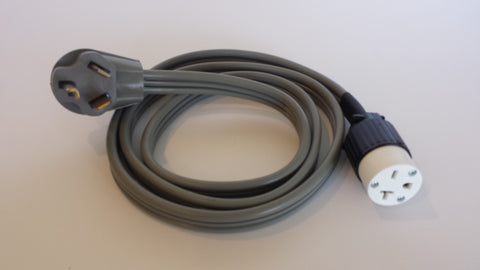EVSE adapter plugs into TT-30 RV outlet (120v 30amp) - Adapter #98
Allows you to plug your EVSE with 6-15 or 6-20 plug into TT-30 (Travel Trailer 30amp) outlets, sometime referred to as RV30.
- Plugs into 30amp 120v outlet commonly found in RV parks sometimes referred to as a "RV30", this is technically a NEMA TT-30
- Passes 120v through to a NEMA 6-15/6-20 outlet
- For EVSE's rated for Level 1 / Level 2 charging and equipped with a 6-15 or 6-20 plug
Note: NEMA 6 series plugs (6-15 & 6-20) are 240v connectors. Your EVSE must be 120 volt (Level 1) compatible to use this adapter such as my Duosida D25-16A EVSE and OpenEVSE dual voltage models for example. These EVSE's are typically marketed as Dual Voltage. This adapter is not a converter and doesn't change the voltage up or down, it passes the 120v from the NEMA TT-30 to a 6-15/6-20 outlet.
20amp outlets typically have one straight slot and one "T" shaped slot. The "T" shaped slots indicates backward compatibility with 15amp plugs. This is what allows Adapter #98 to accept two different plugs.
The NEMA TT-30 (TT stands for Travel Trailer) connector is a 120 V 30 A recreational vehicle standard (hot-neutral-ground), also known as RV 30. The TT-30R receptacle is commonly available in nearly all RV parks in the United States and Canada, and all but the largest RVs manufactured since the 1970s use this plug to connect to power feeds.
The appearance of this plug is sometimes confused with a NEMA 10 connector, rated for 240 V, but the NEMA TT-30 is a 120 V device. The hot and neutral blades are angled at 45° from vertical and 90° to each other, similar to NEMA 10 devices, but the plug is slightly smaller than a NEMA 10 and larger than ordinary 5-15P plugs. The ground pin is round, like those on straight-blade NEMA grounding devices.
Adapter #98 30amp TT-30 Plug to 6-20R socket (240v 20amp)
Here are the more common NEMA outlets:
- 5-15 standard 15A 120 volt household outlet, the most common you see everywhere.
- 5-20 standard 20A 120 volt household outlet, required by code in bathroom and behind your refrigerator.
- 6-15 standard 15A 240 volt household outlet, found in homes and motels for running in-wall Air Conditioners, it’s the smaller brother to the NEMA 6-20 outlet. The 5-20 is not as common as a 6-20 outlet with it’s “T” shaped slot as it will accept both 6-20 and 6-15 plugs.
- 6-20 standard 20A 240 volt household outlet, found in homes and motels for running in-wall Air Conditioners, also found occasionally in residential garages.
- 6-50 standard 50A 240 volt 3-prong outlet, found in shops and garages used for large welders.
- 10-30 standard 30A 240 volt 3-prong Dryer outlet found in homes build before 1996
- 14-30 standard 30A 240 volt 4-prong Dryer outlet found in homes build in 1996 and newer
- 14-50 standard 50A 240 volt 4-prong Range (electric stove top) outlet, also called RV-50 at the RV parks. By far the best universal connector to have for an EVSE. This is the one the Tesla guys install in their garages.
- TT-30 (Travel Trailer 30amp) 30A 240 volt 3-prong outlet, the older style found in RV parks, not used in residential homes.
- L6-30 (locking 240 volt 30amp) Twist-Lock 30A 240 volt outlet, my personal favorite locking connector, easy to find in stores, works great for adding adapters to portables EVSE’s equipped with a L6-30 plug.
220/240 volt outlets are commonly install with the ground pin towards the ceiling for safety. 110/120 volt outlets can be found mounted in all directions. Be sure to carefully look at your outlet and the chart, it's easy to mistake one outlet for another if your outlet has it's ground pin facing the floor instead of the ceiling or Vice Versa compared to the chart.
In the full NEMA number you will see a capital R or P. The R stands for Receptacle (outlet) and the P stands for Plug, we commonly truncate this to just the numbers and add the word receptacle (or outlet) at the end. For example 14-50R becomes 14-50 receptacle or 14-50 outlet.


Need some extra length between your existing outlet and Appliance Buddy™ or between the Appliance Buddy™ and your second Appliance? I custom build extension cords to the length your need and with the plug and outlet of your choice, see my extensions in the Adapter’s section for several models; Extension Cords
We Also Recommend
